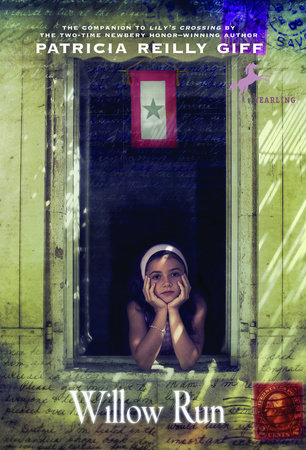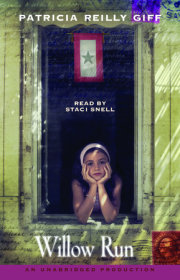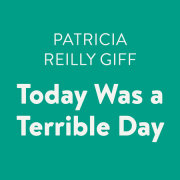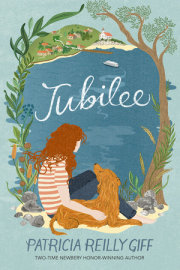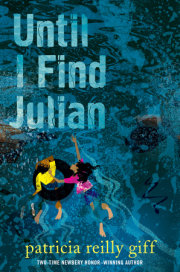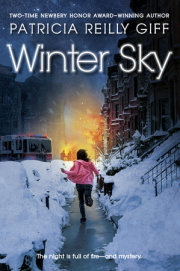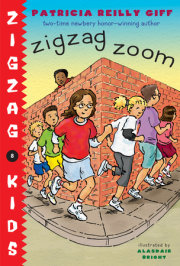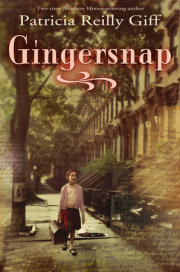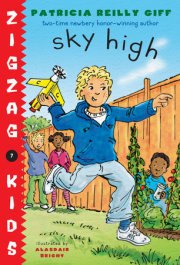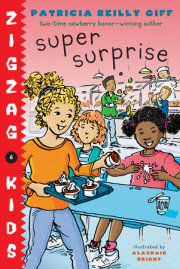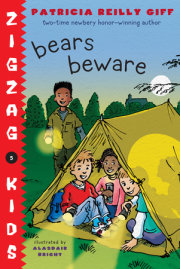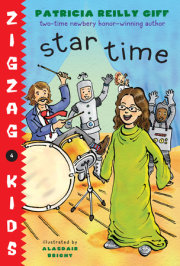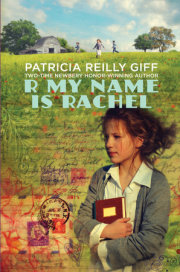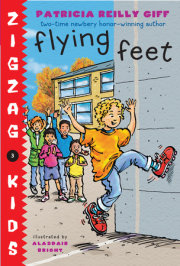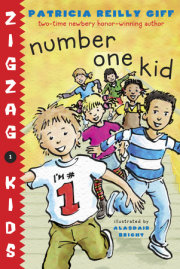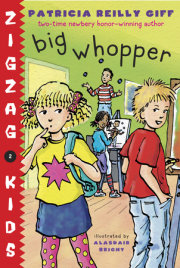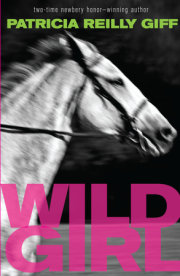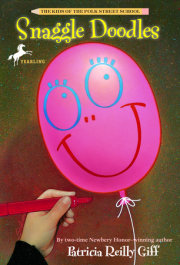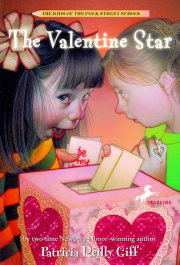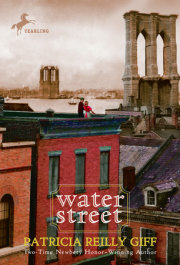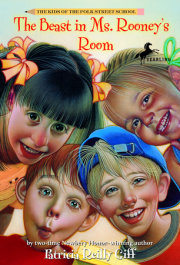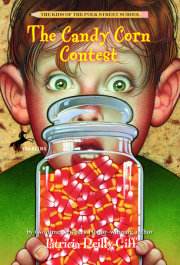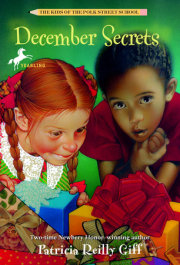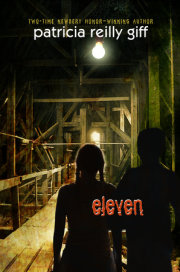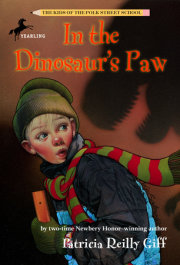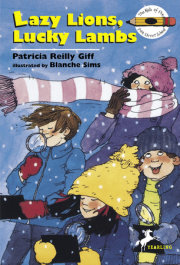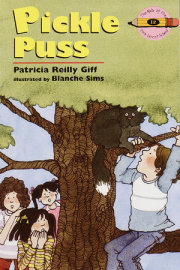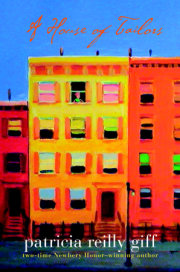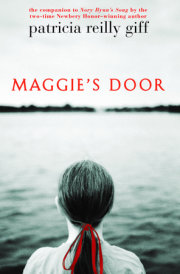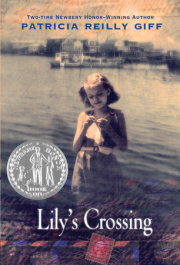Chapter OneThe wheels made a horrible sound; no wonder. The wagon belonged to Joey Kind down the block, who hadn't used it in years; the whole thing was a rusted mess. And the nerve of Joey to say, "You be careful, Meggie Dillon. Don't ruin it."Too bad, I wanted to tell him, keep your old wagon. But I had to borrow it. It was all for the war effort. And right now rattling along in the center of the wagon was Big Bertha, Mom's iron statue that had a clock in her stomach. She'd been rusting away in the attic forever, just like Joey's wagon.Big Bertha was going to war. Mr. North at the junkyard would pay me a quarter and Bertha would be melted down into bullets. Poor Bertha.It was almost dark so I began to hurry. I chugged past Grandpa's house but I knew he wasn't there. He was at my house waiting for Dad to get home from work. Dad had news, that was all Mom would tell us, and we'd hear it over a late supper of salad greens and flounder in tomato sauce: greens we'd grown in Grandpa's garden, and flounder Grandpa and I had caught this morning. Poor flounder. Poor me for having to eat it with every single one of its skinny bones getting caught in my teeth.Someone was moving along the side of Grandpa's house. My mouth went dry. Here we were in the middle of a war. Suppose it was a spy?As quietly as I could considering the squeak of the wheels, I shoved the wagon into a pile of bushes and tiptoed up the driveway. I went slowly, ready to tear back to the street and across the lawn to one of Grandpa's neighbors before the spy shot me.A pair of shadows. I clapped my hand to my mouth so I wouldn't make a sound. Then I realized I knew them both. One was Joey Kind's older brother, Mikey, and the other was a kid I had seen down at the beach flexing his muscles as if he were Charles Atlas, the weight lifter. His name was Tommy or Donny or . . . I wasn't sure, but I remembered my friend Lily Mollahan nudging me, asking, "Did you ever see such an idiot in your life?"He was not only an idiot, he was big. They were both big, sixteen or seventeen, and tough, and I shivered thinking what would happen if they caught me following them.But what were they doing? They had an open can of red paint and a couple of brushes, and they began to dab something on Grandpa's kitchen window."Hey!" I yelled, without stopping to think.They spun around. Mikey looked embarrassed, but the muscle guy kept going with the brush. It looked as if he were painting a spider . . . but then I saw. He was painting a swastika, the Nazi sign, on the glass pane."That's what we do to Nazis around here," he said."He's not a Nazi!" I could feel the anger in my chest, a pain so sharp it was almost hard to breathe. "He's American," I managed."Sounds German to me." The muscle guy was grinning. And then he was imitating Grandpa, mixing up his fs and his vs, sounding the way the Nazis did in the movies . . . . . . sounding like Grandpa.I had a quick picture of Grandpa in my mind, Grandpa sitting on a bench down at the canal, his head back, that awful red hat on his head, his face sunburned, singing "Mairzy Doats" with a German accent."Get out of here, both of you!" I yelled, almost forgetting it would be dark in about two minutes and I was alone with them back there."You're lucky," Muscle Man said. "If this were anywhere else but Rockaway, they'd probably put him in jail. He's got to be a spy."I picked up a stone, ready to throw it, but Mikey took a step toward me. "You know what, Meggie? I think you want the Nazis to win the war. You and your Nazi grandfather."My arm went down to my side. "That's not true. You know that's--""Anywhere else, something would happen to him. Worse than jail," Mikey said. "Worse than anything. And to you, too."Why was he saying this? Maybe because I'd told the lifeguard at the beach that he was out too far.But maybe not. He'd always been mean.Or maybe that was what people really thought, that Grandpa was a spy, that I . . . Somewhere down the block I heard a door slam. The two of them slipped past me along the side of the house. When they were halfway down the driveway I plunked the stone after them, hitting the pail of paint."Crummy aim," Muscle Man said, and Mikey called, "Heil Hitler.""Watch out, next time--" and then I broke off because it looked as if they were going to come back after me.I darted around back, but now I heard them marching up the street yelling, "Heil, heil," with that same accent.I went up to Grandpa's window and put my finger on the painted swastika. It was thick and still shiny wet, and I could feel that my cheeks were wet, too.Grandpa was the biggest pest in the whole world, calling me Margaret every two minutes instead of Meggie, whispering during movies so I couldn't even hear what was going on, saying bah whenever he didn't agree with me.So why was I crying?
Copyright © 2005 by Patricia Reilly Giff. All rights reserved. No part of this excerpt may be reproduced or reprinted without permission in writing from the publisher.

